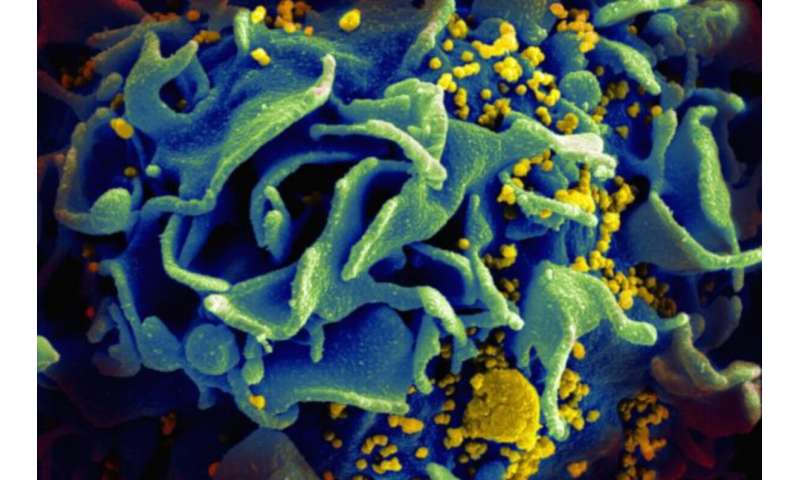
Hamburg-based researchers are seeking to improve future treatment of HIV patients using a new gene and cell method. Under the umbrella of Hamburg biotech startup Provirex, they are developing a new therapeutic approach that uses ‘gene scissors’ to cut out the blueprint of the AIDS pathogen HIV from the genome of the infected cell and eliminate the virus. For the first time, this could make it possible to remove the virus instead of keeping it at bay, as is common with previous forms of treatment. The startup will drive further development of Brec1 technology, particularly with regard to simplified and direct routes of administration. A Max Planck technology contributes to innovative basis for the HIV gene scissors.
The concept is based on research by Joachim Hauber and his team at the Heinrich Pette Institute (HPI) – Leibniz Institute for Experimental Virology and Frank Buchholz at the Max Planck Institute of Molecular Cell Biology and Genetics and at the Technical University of Dresden. Together they have developed and optimized ‘gene scissors’: the designer recombinase Brec1. The approach is currently being prepared for clinical trials in a collaboration between the HPI and the Medical Center Hamburg-Eppendorf (UKE). It will initially be evaluated as part of stem cell therapy involving eight HIV patients at the UKE’s Department of Stem Cell Transplantation under the leadership of Nicolaus Kröger. The German Federal Ministry of Education and Research (BMBF), the Hamburg Senate and ForTra gGmbH für Forschungstransfer—the subsidiary of the Else Kröner-Fresenius Foundation (EKFS) – have provided funding and investment resources for this purpose.
Senator for Science Katharina Fegebank: “Hamburg startup Provirex can make a decisive contribution to the fight against HIV and AIDS. This new form of treatment could make it possible to free patient cells from HIV permanently and accurately for the first time, which would be a medical, societal and historical breakthrough on the way to curing HIV and AIDS.”
“This could become a milestone in the fight against HIV,” adds Joachim Hauber. “We are delighted that we now have the opportunity here at the UKE campus in Hamburg to develop new treatment methods based on our own research results.”
Source: Read Full Article





